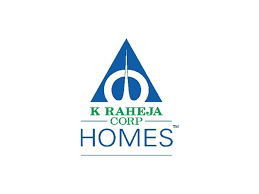

Investment Property: The Ultimate Guide for Smart Investors
17th September 2024
In the world of finance, few investment strategies offer the stability and potential returns that investment properties do. Whether you’re looking for passive income, property appreciation, or simply a way to diversify your portfolio, real estate remains one of the most lucrative options available. But before jumping into the real estate market, it’s crucial to understand the full spectrum of what real estate investing entails—from types of properties to benefits, risks, and strategies for success.
What is an Investment Property?
An investment property refers to any real estate purchased with the primary purpose of earning a return, either through rental income, resale, or both. Unlike your primary residence, which is mainly for personal use, an investment property is a financial tool. Whether it’s a residential property, a commercial property, or a vacation rental, the aim is to generate income and build wealth over time.
Types of Investment Properties
Understanding the different types of investment properties is the first step toward choosing the right one for your financial goals. Let’s dive deeper into the most common categories:
1. Residential Properties
These are the most familiar types of real estate investments for most people. Residential properties include single-family homes, duplexes, and multi-unit buildings rented out to individuals or families. The primary benefit here is consistent rental income, which helps cover mortgage payments, maintenance, and still leaves room for profit. Many first-time investors begin with a buy-to-let property due to the relatively lower capital requirement and ease of management.
2. Commercial Real Estate
Commercial properties are buildings or land used for business activities. These can range from office buildings, retail shops, or warehouses. Though they often require a more significant upfront investment than residential properties, commercial real estate usually offers higher returns. Businesses typically sign long-term leases, providing stable cash flow and fewer tenant turnover issues.
3. Vacation Rentals
The rise of platforms like Airbnb and Vrbo has fueled interest in vacation rentals as a form of investment property. These short-term rentals are typically located in tourist-heavy areas, offering the potential for high income during peak seasons. However, because these properties cater to transient guests, the management requirements can be more intense. You’ll need to ensure the property remains in good condition and continually attract new renters, which can sometimes mean higher maintenance and marketing costs.
4. Industrial Real Estate
An often-overlooked category, industrial properties include warehouses, distribution centers, and manufacturing facilities. These properties are generally leased to businesses with long-term needs for large storage or operational spaces. Industrial property investment can offer substantial, stable returns due to long lease terms and less frequent tenant turnover, although they require significant upfront capital and specialized knowledge.
5. Mixed-Use Developments
Mixed-use developments combine both residential and commercial spaces within the same building or area. For example, a multi-story building may have retail shops on the ground floor with residential apartments above. These properties can offer diversified revenue streams from both commercial tenants and residential renters, making them an attractive option for seasoned investors.
Key Benefits of Investing in Real Estate
There are several compelling reasons why real estate investment continues to be a popular choice for both new and experienced investors. Let’s explore some of the main benefits:
1. Long-Term Appreciation
One of the greatest advantages of real estate is its potential for long-term appreciation. Historically, property values have increased over time, making it a solid choice for those looking to build wealth gradually. While market fluctuations can occur, real estate has a reputation for stability when compared to more volatile investments like stocks.
2. Passive Income Generation
A rental property can provide a steady source of passive income, especially if it’s located in a high-demand area. Once you’ve secured tenants, the rental income can help cover your mortgage payments, insurance, property taxes, and maintenance costs while still generating a profit.
3. Hedge Against Inflation
Real estate tends to be a strong hedge against inflation. As inflation increases, so do property values and rental rates. This means your investment continues to grow in value even as the purchasing power of money declines, protecting your wealth over the long term.
4. Leverage
Real estate allows investors to use leverage (borrowed capital) to increase the potential return on investment. By taking out a mortgage to purchase a property, investors can control an asset worth far more than their initial capital outlay. If the property value appreciates, this can lead to significant returns on the money invested.
5. Tax Advantages
Owning an investment property comes with multiple tax benefits. Investors can deduct many property-related expenses, such as mortgage interest, property management fees, maintenance costs, insurance, and depreciation. These deductions can significantly lower your taxable income, increasing your overall return on investment.
Challenges and Risks in Real Estate Investment
Like any investment, real estate comes with its share of risks. Understanding these challenges will help you navigate the market more effectively.
1. Market Fluctuations
The real estate market is influenced by broader economic conditions, and property values can fluctuate depending on market trends. While real estate is generally stable in the long term, short-term market downturns can affect your ability to sell or refinance a property at a favourable price.
2. Maintenance and Repair Costs
Owning a property is not just a one-time investment. Property management can be costly, especially when maintenance and repairs are needed. Regular upkeep is essential to keep the property in good condition and attract tenants, but it can eat into your profits if not budgeted properly.
3. Tenant Risks
A vacant property generates no income, and finding reliable tenants can sometimes be challenging. Tenant-related issues like late rent payments or property damage can also impact your cash flow. It’s essential to conduct thorough tenant screenings and have a solid lease agreement in place to mitigate these risks.
How to Start Your Real Estate Investment Journey
Investing in real estate requires careful planning and strategic execution. Follow these steps to get started:
1. Do Your Research
The first step in real estate investing is to research the market thoroughly. Look at factors such as population growth, job opportunities, and infrastructure development in your target location. Areas experiencing rapid growth are often the best places to invest in, as they tend to offer higher rental yields and property appreciation. Consider looking up the best cities for real estate investment to identify lucrative opportunities.
2. Evaluate Your Finances
Determine how much capital you have to invest. If you plan to use leverage, speak with mortgage brokers or lenders to understand your financing options. Keep in mind the additional costs of owning a property, such as insurance, taxes, and unexpected repairs.
3. Property Management or DIY?
Consider whether you want to manage the property yourself or hire a property management company. While self-management can save costs, it’s also time-consuming and requires a hands-on approach. A professional property manager can handle tenant relations, repairs, and rent collection, making it easier for investors who prefer a more passive approach.
4. Stay Informed
Real estate markets are dynamic. Regularly monitor trends, changes in real estate regulations, and investment property trends to ensure your investment strategy stays relevant and profitable.
Conclusion:
Why Real Estate is a Solid Investment for the Future Investing in real estate remains one of the most reliable and profitable ways to build long-term wealth. The potential for property appreciation, steady rental income, and various tax advantages make it a smart choice for investors looking to diversify their portfolios. However, like all investments, success in real estate requires careful planning, research, and an understanding of both the risks and rewards.
Whether you’re investing in a rental property, commercial real estate, or considering short-term vacation rentals, with the right strategy, real estate can become a cornerstone of your financial future.
Register Your Interest
Recent posts


Understanding Leasehold Properties: What You Need to Know

An Ultimate Guide to Fractional Ownership Real Estate in India.

What is Khasra Number? A Complete Guide

Effective tax planning strategies for buying property in India
